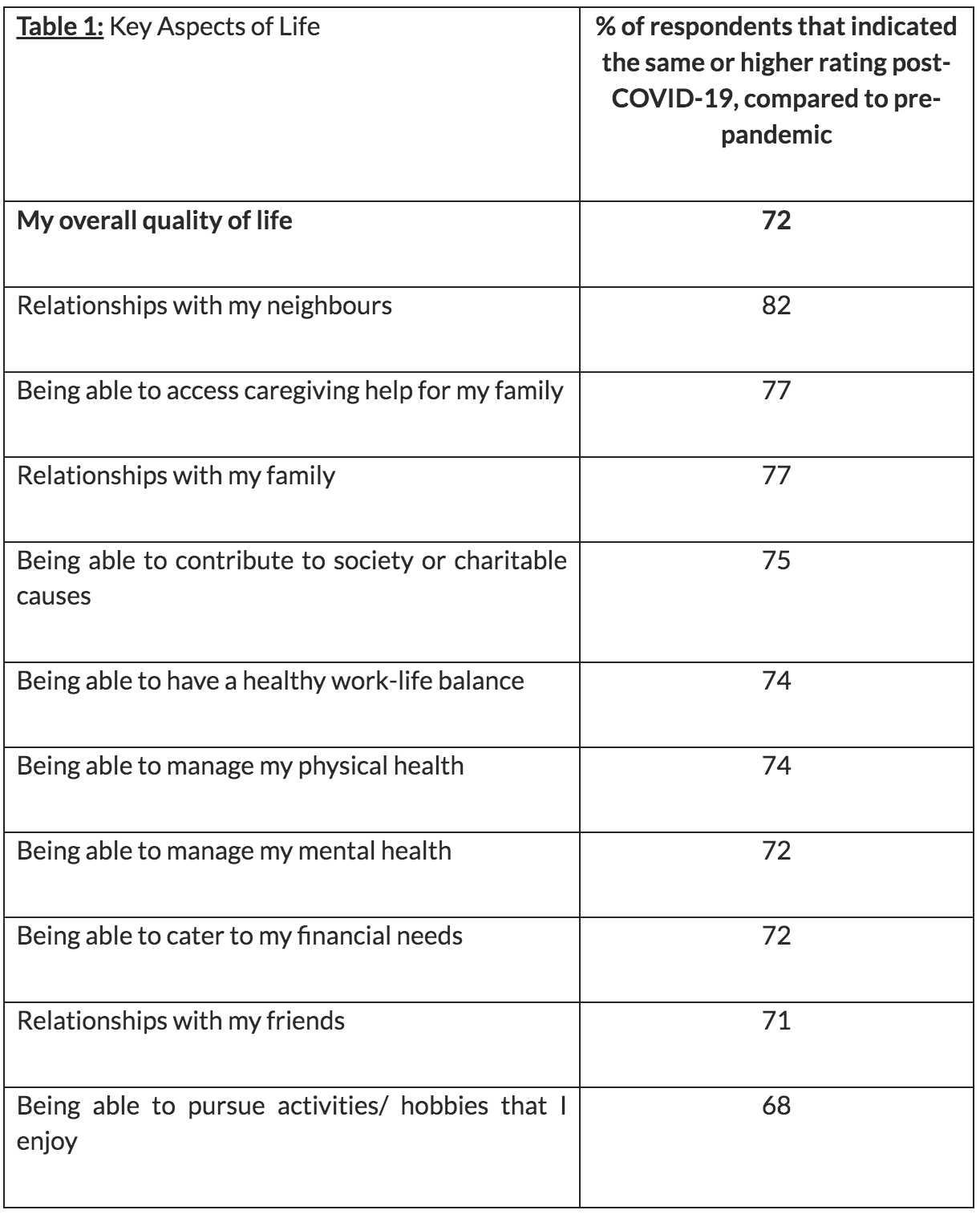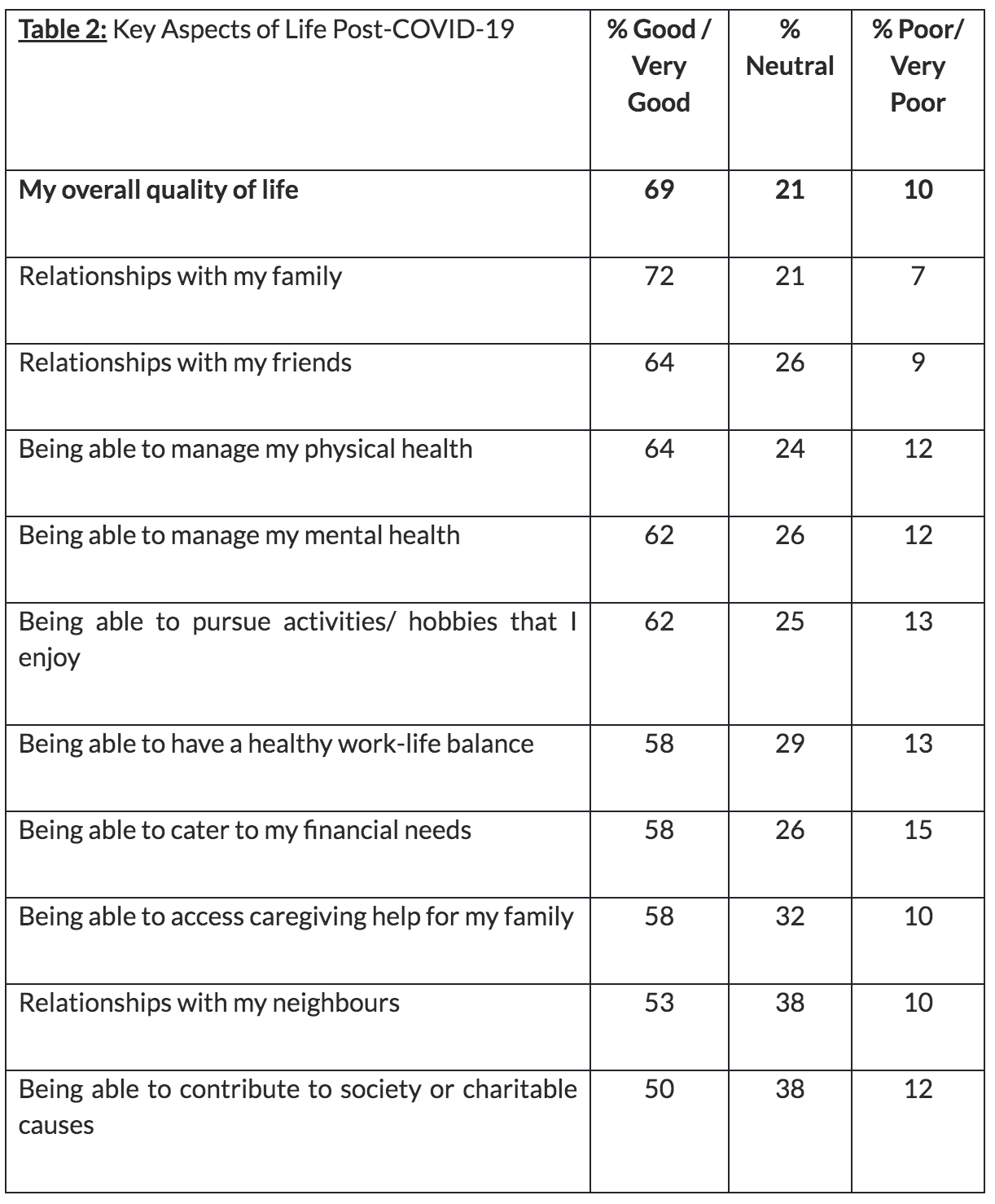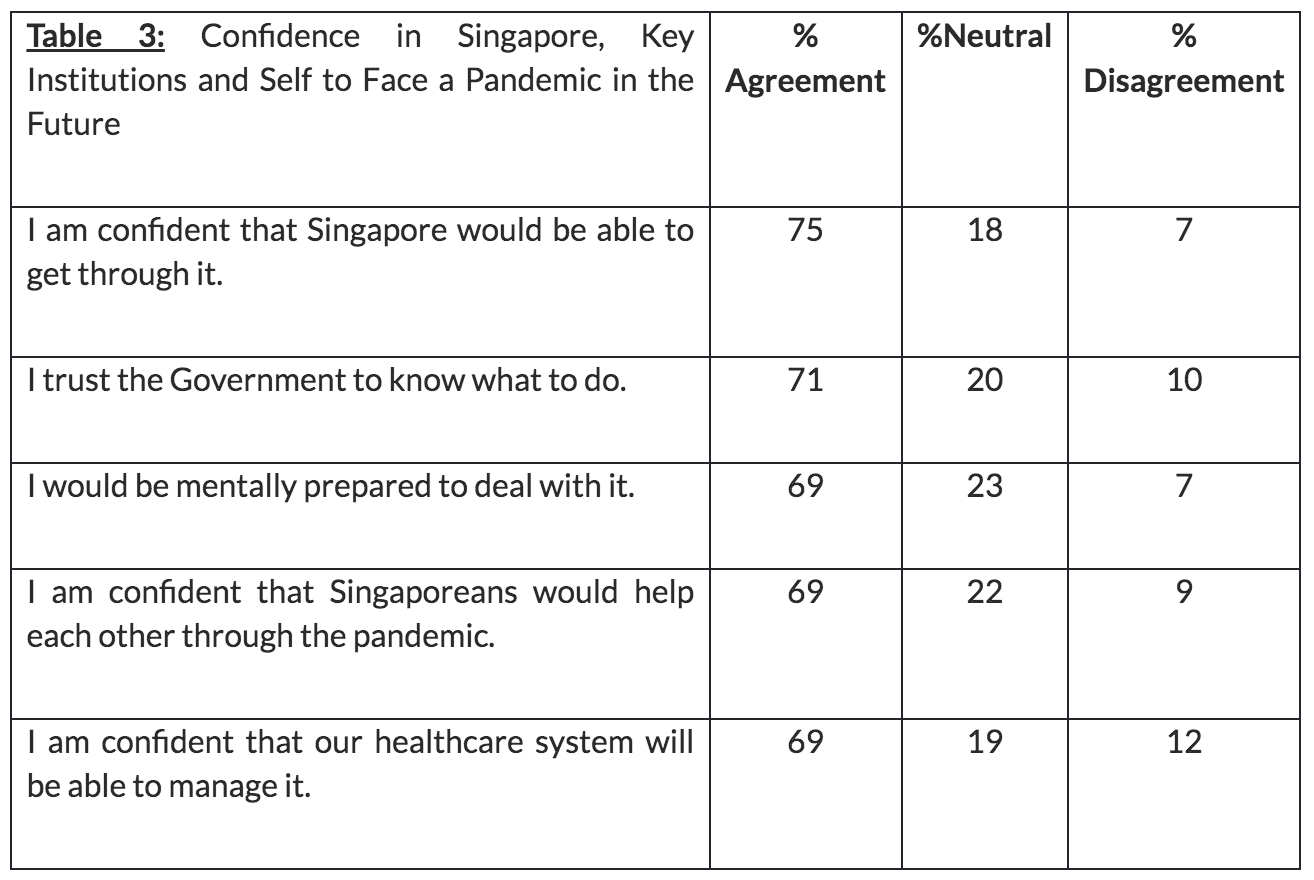Government surveys and reports seem to be coming in hot lately—take a look at this Labour Market Report or this study on cheap eats.
The newest poll, commissioned by the Ministry of Communications and Information (MCI), investigated the overall impact of the COVID-19 pandemic on citizens.
Surprisingly (or unsurprisingly, depending on who you are), over 70% of Singaporeans reported that their quality of life was similar or better than the pre-pandemic period.
Here’s what you need to know.
Overall Quality of Life
According to the survey, around 72% of Singaporeans felt that their overall quality of life was the same or higher this year than in 2019.
Quality of life was evaluated on ten key criteria, including mental health management, work-life balance, and the ability to access caregiving help for their family.
A table by the MCI showing all the aspects of life evaluated is shown here:

Apparently, the area with the greatest satisfaction is relationships with neighbours—82% of people felt that their satisfaction in that aspect was the same or higher.

The lowest percentage is the ability to pursue hobbies/activities they enjoy, at 68%. With COVID-19 shutting down borders for years and making travel difficult, it’s no surprise that this percentage is the lowest.
When asked to rate their overall quality of life on a scale ranging from “poor/very poor” to “good/very good”, 69% of respondents answered the latter.
Here’s the table if you’d like to take a look:

Confidence in Singapore and the Singaporean government was similarly high, with 75% expressing their confidence that Singapore would get through the pandemic and 71% agreeing that they trusted the government to handle it.

Drop In Quality of Life Reported by Youths
Compared to the general population, a higher percentage of youth aged 15-19 reported an overall drop in their quality of life.
38% of youths, in contrast to 28% of the general population, reported that their quality of life was lower post-pandemic. 37% also reported a drop in their ability to manage their mental health, compared to 28% of the general population.
40% of youths also reported poorer relationships with friends post-pandemic (28% for the general population), suggesting that COVID-19 restrictions impeding social activities affected them more. 49% also felt less able to pursue their hobbies and interests, compared to 32% of the general population.
Respondents with multiple dependents also reported a lower quality of life. 18% rated their quality of life as “poor/very poor”, as compared to 10% of the general population. Dependents include children at home and elderly people.
Unemployed respondents reported having less confidence that Singapore would get through another pandemic, with 16% expressing their lack of faith, compared to 7% of the general population.
What’s The Significance Of This Poll?
The survey, conducted online from 31 January to 6 February by research organisation Rysense, was commissioned by the MCI.
Its sample size was 1,052 Singapore residents aged 15 years old and above.
It comes amid discussion about Singapore’s performance during the pandemic—a White Paper about the topic was recently released on 8 March, and will be debated in Parliament today.
In Deputy Prime Minister Lawrence Wong’s statement at its release, he called COVID-19 a “complex and wicked problem on a grand scale”, and said that the government had to operate in a “fog of war”.
The White Paper details what the country did and did not do well in responding to the pandemic.
“COVID-19 was a very bleak period for many of us. It was a time of heartache as our gatherings with family and friends were restricted, a time of anxiety as our daily activities had to adjust along with the uncertainties of the pandemic,” said Minister of Communications and Information Ms Josephine Teo.
In a Facebook post, she called the pandemic the “crisis of our generation”, but also labelled it a “time of light” where qualities like kindness and generosity were displayed in the fight.
Would you be jailed for being half-naked in public? Well, the answer will shock you. Seriously. Watch this to the end and you'll understand:




